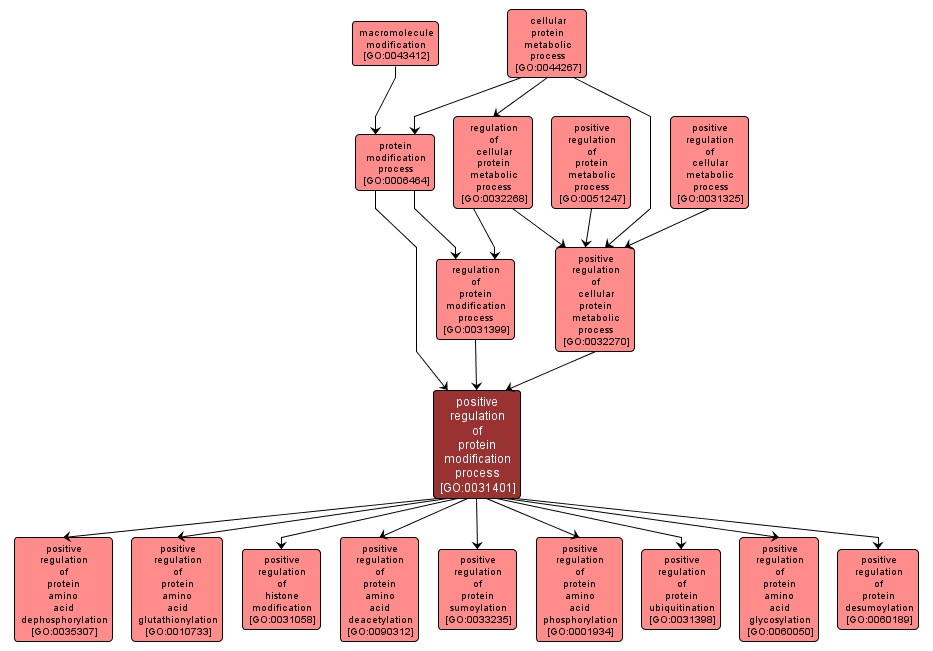GO TERM SUMMARY
|
| Name: |
positive regulation of protein modification process |
| Acc: |
GO:0031401 |
| Aspect: |
Biological Process |
| Desc: |
Any process that activates or increases the frequency, rate or extent of the covalent alteration of one or more amino acid residues within a protein. |
Synonyms:
- up regulation of protein modification
- activation of protein modification
- stimulation of protein modification
- upregulation of protein modification
- up-regulation of protein modification
|
|

|
INTERACTIVE GO GRAPH
|














